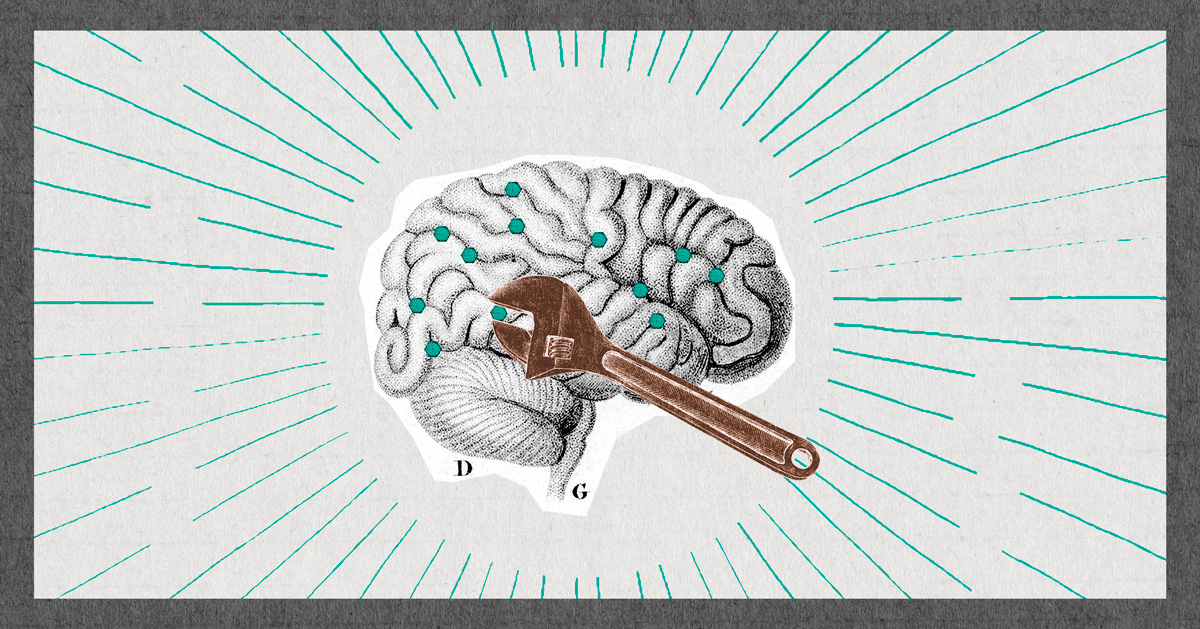15 Life Skills
Everyone Should
(Actually) Know
By stillman brown
These skills will change your life – yet somehow we're never formally taught them. That changes now.
You’ve seen them a hundred times: posts on places like Reddit or Buzzfeed with the 10, 50, or 6,000 skills EVERY man MUST know, from buying a suit to changing the oil in your car to building a log cabin by hand.
Look, I get great satisfaction from adding to my hands-on skills. Carpentry, first aid, and starting a fire are useful things to know.
But let’s face facts: Most of us wear suits once or twice per year, buy our food in a climate-controlled miracle called a grocery store, and outsource most home, automobile, and healthcare tasks to professionals. Why? Because in a complex society it’s efficient to pay specialists for their knowledge!
Here at Primer we’re kicking off 2021 with a discussion of skills to inspire growth and development in the new year.
But instead of the same-old stuff you see all over the internet we’re going deep with a list of concrete life skills you will use every day, month, and year for the rest of your life.
These aren’t skills you can pick up in an afternoon – they’re practices you must develop and hone over the course of a lifetime.
No matter how many engines you rebuild or emergency tourniquets you twist, chances are you could use some work on these life skills.
How To Use This List
It would be impossible to launch on all 15 at once, so pick and choose a few that speak to you and focus on them this year.
Personally, I’m going to bookmark this list and come back to it periodically – because these 15 items contain the work of a lifetime.
There’s never been a more important time to get started building these life skills.
1. How To Develop And Pursue A Vision For Your Life
You know that friend who always seems to be doing something interesting, challenging, and purposeful? Compared to them do you feel a little adrift and confused by life?
Chances are, it’s not because they’re smarter or more hardworking. It’s just that some people seem to know where they’re headed in life … and then focus on getting there.
So how can you be more like them?
It may sound odd, but having vision is actually a skill you can develop. Learn how with Get Into Journaling: The One Thing That Can Change Everything
- Start by asking big questions: what do you want from your life?
- What do you want it to look like in 5, 10, or 50 years?
Looking to dive deeper, ask yourself the 18 questions Primer’s founder Andrew Snavely asks himself during his year-end review.
If you already have the vision, but struggle with execution check out 50 Short-Term Goal Examples You Can Actually Commit To That Will Change Your Life.
Stanford professors Bull Burnett and Dave Evans offer a course and a book on designing your life using practical, actionable exercises:
2. How To Have A Rewarding Sexual Relationship
Sex is so much more than simply feeling great – it’s a key predictor of long term happiness and relationship success. Sex is also a vehicle for self-expression, empowerment, and developing your ability to connect to others.
So how do you develop good, fulfilling sex … as a skill?
We’ve written a lot about sex and talked to a lot of experts and one key thing keeps coming up: communication. Ask yourself, how well do I communicate with my partner(s)? Do I actually know what they want? Do they know what I want? Do I know what I want?
Spark the discussion with one of our most-read posts ever: Help! My Girlfriend and I Stopped Having Sex.
Learn more with world renowned psychotherapist and best-selling author Esther Perel’s Ted Talk on maintaining desire in a long term relationship:
3. How To Cook Vegetables So You'll Actually Eat Them
I don't have to go out on a very long limb to guess you don't eat vegetables as often as recommended. But why is that? For me it comes down to two reasons.
I like vegetables … when they're served as a side at a restaurant or my mom's cooking; then they taste fantastic! The problem is, all the times I've tried to make them myself turn out bland and disappointing.
Here’s the thing: In the long term, eating a vegetable-rich diet is important for your waistline and longevity (a bad diet will definitely mess up your health), and in the short term you need the essential nutrients, vitamins, and fiber found in veggies.
The good news is, making vegetables that you want to eat is actually pretty straightforward. The secret? Roasting: Dice, toss with salt and olive oil, spread on an oven tray, and bake at 425 until toasty. They’re delicious every time.
When you’re ready to take your veggies to the next level check out the delicious vegetable recipes from Epicurious.
4. How To Recognize And Deal With Stress
When I was 26 I was working a demanding job with long, unpredictable hours and a toxic boss. My mom had health issues. I’d just broken up with my girlfriend.
Around that time I started feeling short of breath at work. I went to a series of doctors to get my heart, lungs, and brain checked out until one of them gently suggested … maybe I was stressed?
They were right. The problem was, my stress had accumulated slowly. With each new stressor I just learned to cope and keep on pushing ahead …until I literally couldn’t breathe.
Don’t be like 26-year old me; take action.
Get the 10 keys to stress management from a licensed counselor.
Then take your stress management to the next level with our Fundamentals of Strategic Self-Care.
5. How To Take Control Of Your Time
I used to feel like I was just spinning my wheels.
I would start my day with an ambitious list of things I wanted to accomplish and end every night frustrated because I’d wasted hours procrastinating.
Even if you don’t struggle with procrastination like me, taking control of your time is an essential skill for a productive, fulfilled life. As you move from your 20s to 30s to 40s, the demands on your time only grow. You have to do more with less.
Start by keeping a log of how you spend your time for two or three days. Time is like money: you have to know how you’re spending it before you can take control. Do it in 15 minute increments. You’ll be amazed at what’s wasted.
Get motivated with 13 Bulletproof Tricks for Finding Time for Your Side Hustle
Then check out this guide to Maximizing Productivity While Working From Home … it’s the story of how I rescued myself from a spiral of procrastination, ADD, and became more productive than I ever thought possible.
6. How To Be Productive With Someone You Don't Like
The average person will spend 90,000 hours at work over the course of their career. That’s roughly ⅓ of your entire life, and a good chunk of it will be around people you don’t like.
Figuring out how to get s*** done with challenging people will reduce your stress, boost your happiness, and make you a leader amongst mortals.
Start with these 6 Tips For Working With People You Don’t Like.
Do you have to work with someone who’s emotionally difficult? Check out our guide to Talking To Angry People.
7. How To Set (And Own) Personal Boundaries
People are the worst. Unfortunately, they’re everywhere: work, the store, even … inside your own home (*Wilhelm scream). And they constantly challenge your personal boundaries.
Overstepping boundaries can take a lot of forms, from oversharing to bullying to actual unwanted physical contact. It can be hard to figure out what your boundaries are and even harder to enforce them.
If you spend a lot of time dealing with people who overstep your boundaries, that’s time not spent on other, more rewarding pursuits and it may be time for a boundary check-in.
Start exploring the issue with this article from Psychology Today
If you want to go deep on boundaries with family, colleagues, or partners, get a counselor – they’re trained to help with just this sort of thing.
8. How To Make Changes When You're Stuck
Frustrated.
Trapped.
In a rut.
It happens to all of us. It’s normal. The question is, how quickly and efficiently can you get unstuck?
Whether you’re in a rut that’s years-long or just a few weeks, getting better at pivoting your life when you need to is a subtle-but-essential skill.
Get inspired with this master class in unsticking your life, Why People Don't Have What They Want: 12 Common Traps to Help Diagnose Stagnation.
9. How To Make A Relationship Work When It's No Longer Fun
Successful relationships are a lot like “genius:” sure, there’s a certain amount of chance, luck, and genetics involved … but it’s really about the work you put in.
The problem is, western culture constantly reinforces the idea that once you find the perfect person you transition to a state of perfect bliss.
Bulls***.
As the officiant at my wedding put it: you’re going to have to make the choice to fall in love again and again. It’s a skill and a practice, just like anything else.
Start building your long-term relationship skills with Surviving the End of the Honeymoon Period, which comes with a handy reading list for diving deeper.
10. How To Be Accountable To Others
So far we’ve talked a lot about dealing with difficult people … what if you are the difficult person? How would you know unless you have some way of getting feedback from others?
Even if you’re not difficult (i.e., a jerk!), it’s essential to hold yourself accountable to others. The question is, how do you develop accountability … as a skill?
It starts with how you define accountability. Does it mean inviting constructive criticism from family, friends, and colleagues? Does it mean obeying the law, being honest on your taxes, or following public health rules?
Because it’s so individual, developing personal accountability requires self-reflection … the kind of self-reflection that arises from journaling. To quote Ralph Waldo Emerson:
“…Keep a journal… It is not for what is recorded… but for the habit of rendering account to yourself of yourself in some more rigorous manner and at more certain intervals than mere conversation or casual reverie of solitude require.”
11. How To Overcome Conflict With Someone You Care About
How many family relationships, friendships, and romantic partnerships have been sundered by an unresolved argument? You probably have examples from your own life … I know I do.
The good news is, conflict itself is a skill that can be practiced – even mastered. What is martial arts, after all, but the study of conflict?
The Art of Confrontation is an excellent introduction to productive conflict.
Go deeper with our guide to What Every Man Needs to Know About Handling Arguments in a Long-term Relationship.
12. How To Nurture Lifelong Friendships
I love my friends. But as a father and husband embarking on a second career, I have less time for my friends than ever before.
As life accelerates, how do you ensure your friendships can last a lifetime? And as old friends drift away, how do you find new friends to connect with?
Like any relationship, it takes time, attention, and prioritizing your energy to nurture friendships as an adult. For friends spread across the country it’s impossible to just pop down the hall like you did in college, but that’s OK. Take a page from my college friend playbook and schedule a regular video chat with drinks to catch up, swap stories, and support one another through life changes.
Taking care of your friendships as an adult requires a more intentional approach. Check out pro tips from a psychologist in Getting Serious About Adult Friendships.
If you’re looking to widen your circle of friends, get started with 12 Real Ways To Make Friends As An Adult
13. How To Be Your Own Mental And Physical Health Advocate
Even if you eat right, sleep enough, and avoid drugs and alcohol like a monk there will come a day when you need the support of a health professional, whether it’s mental or physical.
For some, just getting to a doctor or psychologist is a battle. But the work doesn’t end there. You will have to navigate the complexity of the healthcare system – from paperwork to dealing with doctors.
Yes, doctors (generally) deserve our attention and respect, but the more healthcare you get the more you’ll realize that doctors are just people too. They have different training, values, and priorities. Some are excellent listeners; others are arrogant jerks.
If you feel disrespected, poorly cared for, or simply not heard you have a responsibility to yourself to get a second opinion, or simply speak up. In the end, you are the final decider when it comes to your health.
Check out this 5-point script for how to disagree with your doctor respectfully
14. How To Serve Your Community
“If we do not lay ourselves out in the service of mankind, whom should we serve?”
-John Adams
25% of all Americans volunteer time, energy, and expertise each year, the sum of which has been valued at hundreds of billions of dollars. Clearly, we’re a people who like to serve.
But it also feels like service – as an ideal – is less popular than ever. How many figures in our culture are famous for simply … helping others?
Service can take many forms. For you, it might mean volunteering. For others, it means choosing a helping career. Regardless of what it looks like for you, serving others is an essential piece of a life well lived.
15. How To Live A Mortal Life
The reality is unavoidable: we have finite time on earth, which makes time the most valuable thing you – or anyone – owns. I’ve lost three dear friends in the last three years and it really drives home: simply being here is an inconceivable blessing.
So ask yourself, how can you make more time? How can you maximize the time you have?
Perhaps it means living more decisively, charting your own course in life rather than passively letting things happen to you.
It could mean taking full advantage of your health to travel or serve your community now instead of later.
Maybe it means working less and spending more time with family and friends.
Whatever living a mortal life means to you, you will never regret considering the question and striving to live well.
More Skills Add Up To The Project Of Your Life
I feel like a lot of people just live their lives. I’ve never understood that. For as long as I can remember, my life has been an ever-evolving project – something to study, shape, and pursue.
There’s a dark side to this: a persistent sense of things not accomplished that leaves me feeling inadequate. Unchecked, that’s bad.
But I wouldn’t want to be any other way. This list – assembled by the Primer team – is an energizing reminder that you can make your life what you want it to be.
In that spirit, I want to hear from you. What skills are essential to your life?















![It’s Time to Begin Again: 3 Uncomfortable Frameworks That Will Make Your New Year More Meaningful [Audio Essay + Article]](https://www.primermagazine.com/wp-content/uploads/2025/01/begin_again_feature.jpg)
